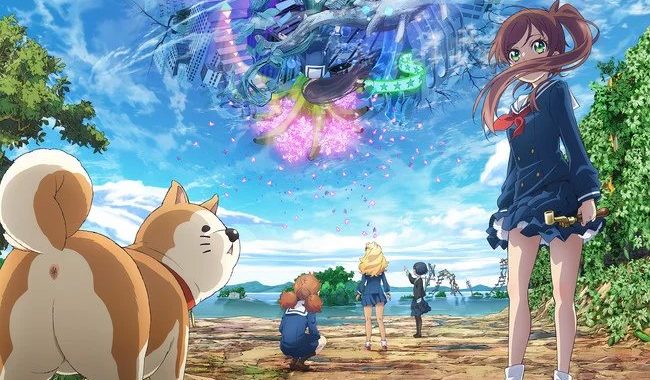 One small step for man, one giant leap for a childhood dream
One small step for man, one giant leap for a childhood dream
Creative Staff
Story/Art: Chuya Koyama
What They Say
Two brothers looked to the starry skies as children and made a promise … Now, in the year 2025, the younger brother, Hibito, is carrying his out. He is an astronaut who has been selected as a crew member for mankind’s first long-term base on the moon. Meanwhile, the older brother, Mutta, has just been fired from his job and is unemployed, but decides to trust himself just one last time. A text message from Hibito sends him applying to be an astronaut too and shooting for the stars … The official Space Brothers manga is ready to launch!
Content: (please note that content portions of a review may contain spoilers):
Space Brothers began its run in the seinen magazine Weekly Morning Japan back in 2007, and the story seems as fresh today for North American audiences. The manga offers appeals to several demographics, but the most important thing as a reader is to understand what happens when you face a change in your life. It may be leaving middle school to go to a high school where you don’t know anyone. It could be leaving home to go to college or work. It could be having to start over when the business you work for goes under. What really matters is that the reader knows the fear, or at least the uncertainty, of starting over.
Mutta Namba, influenced by Zinedine Zidane’s 2006 head butt during the World Cup, assaults his boss when he overhears him talking smack about Hibito, his brother. This leads to Mutta’s immediate termination, and we meet him for the first time as he packs up the cab and prepares to move back home with his parents. These chapters follow Mutta as he learns that his career as an automotive engineer, for which he has won awards, no longer exists.
After the violent outburst, his former boss pollutes the waters. Mutta feels a failure and a burden on his parents. When his mother talks to Hibito about the transition, Hibito asks her to send in Mutta’s CV to JAXA, Japan’s version of NASA. This begins the greater story of a man overcoming his own fears to reach for a dream he shared with his younger brother years ago.
Mutta enters his testing to become an astronaut as an outsider, the older brother of astronaut Hibito Namba. These chapters tell us a little about Mutta. He feels obligated to lead his little brother, but at this point in his life, he can only see Hibito racing ahead of him. Mutta seems preoccupied with women, and even though he never makes a romantic move, we see his thoughts and his desire. Still, everything going on in Mutta’s head seems a contest between the young boy and the cowering man approaching middle age in neither a romantic relationship nor rewarding job.
Viewers of the anime will find a few differences in the manga. Volume one breezes through the story until Mutta first arrives in Houston. The development of side characters also seem a bit different. We learn less about Kenji, Mutta’s parents, and we have more focused introductions to Serika and Sharon. One of the biggest differences is Hibito seems more mature and has a direct way of communicating with his brother. Again, the manga seems much more focused than the anime and careful readers will be rewarded.
In Summary:
Space Brothers is the rarest form of manga in North America—a continuing series written for older teens and adults. We follow a Mutta Namba, a 31 year old, who comes to terms with the unexpected end of his career by first mourning his loss then deciding he has nothing to lose by following his childhood dream of becoming an astronaut. While the plot focuses on Mutta’s efforts to become an astronaut, the heart of the manga remains the internal drama of a man trying to live up to his own expectations while overcoming self doubt. Space Brothers creates characters rich with feeling and real life motives. The mangaka conceived this drama in the heat of literary aspirations, but the story and characters never take themselves so seriously that we forget humans are funny creatures with idiosyncratic personalities.
Highly recommended for fans of the anime, for fans of adult slice of life, and for mature readers of American comics who want a taste of an engaging, complex manga series in translation.
Content Grade: A-
Art Grade: A-
Text/Translation Grade: A
Age Rating: 15+
Released By: Kodansha Comics via ComiXology
Release Date: November 3rd, 2015
MSRP: $10.99



